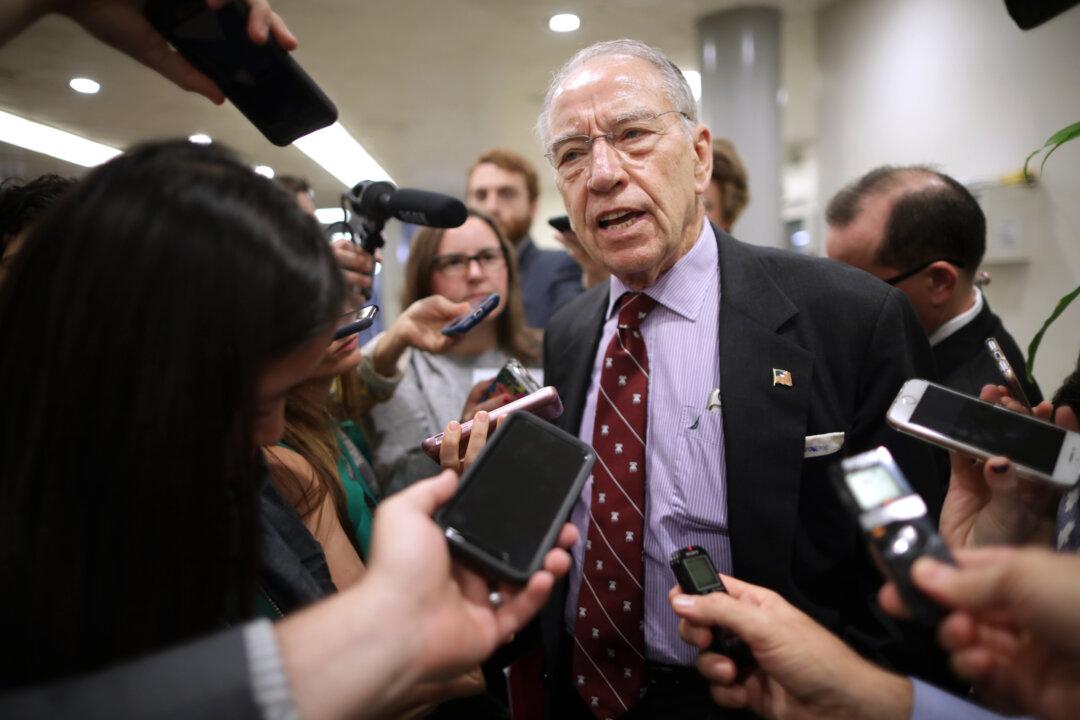The defense funding package set for a vote at the end of July and Sen. Chuck Grassley (R-Iowa) is warning that Congress would likely override a veto by President Trump if he declines to sign the huge defense funding legislation amid the dispute over renaming Army bases named for Confederate leaders.
While speaking with Iowa reporters on Monday, Grassley said he hoped Trump wouldn’t veto the National Defense Authorization Act (NDAA), over military base renaming conflict.





